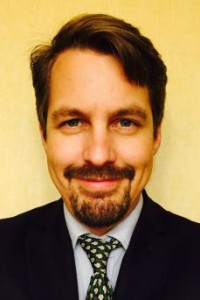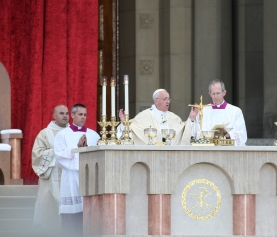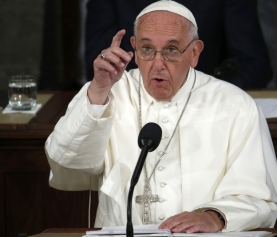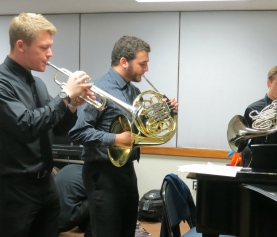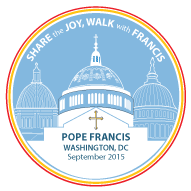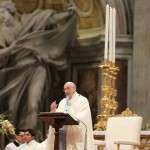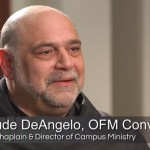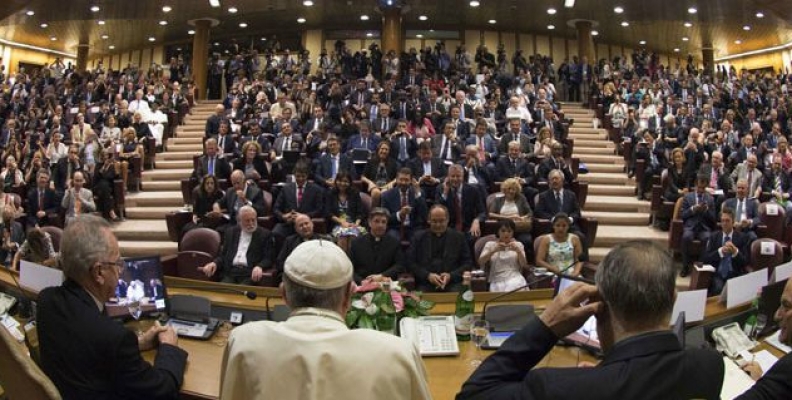
Chad Pecknold: Christ Came into Our Common Home
The Holy Father met this week with mayors from over 60 of the world’s cities to discuss “climate change and human trafficking.” That might seem like an odd combination, but understanding why Pope Francis holds these two seemingly disparate things together when addressing the world’s mayors gives us more clues to how he might address us here in the United States this September.
To provide some context for why Pope Francis wants to tie together climate change and “modern day human slavery,” recall that last year the United Nations Committee on the Rights of the Child urged the Catholic Church to change its positions on contraception and abortion, and it also advocated that the Church support “diverse forms of family.”
The Vatican provided its own strong reply, which reminded the United Nations committee that it had overreached its mandate. The official reply reaffirmed that the Church’s teaching is based on divine law, and cannot be changed on the dignity of human life, pre-natal or post-natal, nor could the Church change her teaching on marriage as the union of a man and a woman.
This is where the Holy Father’s “integral ecology” begins to look interesting as a response not only to the United Nations, but to all local cultures, cities, and countries which may make urgent pleas concerning an ecological crisis, but then fail to see the human crisis. Pope Francis sees this failure to see the whole picture manifested precisely in our “throwaway culture” which wastes human life, especially the weakest and most vulnerable among us, the unborn, the refugee, the elderly, and the poor.
The U.N.’s new “Sustainable Development Goals,” which are set to be finalized this fall, will center on climate change. Pope Francis wrote Laudato Si’, in part, to influence global thinking on “our common home” in a way which showed that the commitment to the environment also demands a commitment to all life, but especially human life. This is why in the encyclical he says: “At times we see an obsession with denying any pre-eminence to the human person; more zeal is shown in protecting other species than in defending the dignity which all human beings share in equal measure.”
Pope Francis wants us to think about the ways in which the fundamental things of life, such as a baby in the womb, a family without a country, or the health of our planet on which we all depend, have to be considered together. Since everything is interrelated,” Pope Francis writes, the U.N.’s concern for the protection of nature, or Planned Parenthood’s concern for women’s health, is “incompatible with the justification of abortion.” The Holy Father asks, “How can we genuinely teach the importance of concern for other vulnerable beings, however troublesome or inconvenient they may be, if we fail to protect a human embryo, even when its presence is uncomfortable and creates difficulties?”
This is why he spoke to the mayors this week not only about climate change, but also human trafficking and modern-day slavery: The love of creation is inseparable from the love of the human person. The more we become numb to the evil of abortion and fetal organ trade, to human trafficking and even the slavery of persons, the more our regard for the dignity of all human life withers. Jesus Christ came into “our common home” as an unborn child — truly human, truly divine in the womb of Mary to reveal to us the depths of God’s love for what he has made. It is for this reason that Pope Francis continues to surprise us with his integral ecology, good news which helps us to see that our common home is worth caring for because the human person who inhabits it is the image and likeness of the God who made it good.
— Chad Pecknold is an associate professor of systematic theology at The Catholic University of America School of Theology and Religious Studies.

